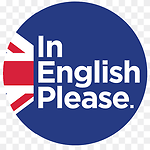Description
You want to understand native speakers easily, but when you're watching television or people are talking to you, it sounds like this... Right? So in today's lesson, I want to share with you five simple things that you can do to really improve your listening comprehension skills and understand and fast speaking natives more easily. Let me remind you that the techniques that you need to develop to improve your listening skills are the same techniques that you need to develop your pronunciation skills and to speak more quickly and naturally. So this video is really a win win lesson. You're going to improve your listening skills and your pronunciation skills today. And when you've learned these skills that I'm going to talk about today, it's vital that you put them into practise. And that means actually listening to English. And one of the best ways to do this is by podcasts or audiobooks. I downloaded a new book by one of my favourite comedians, and I listened to it when I'm taking the children to school, when I'm cooking, when I'm driving. So you can do that. You can practise your listening skills without actually finding extra time to do it. Just include it in an activity that you already do. Exercise too. I listen to it when I'm doing exercise. But choose something that is going to make you want to listen and listen again and again and again. Because creating that routine of listening to some English every day, something that is interesting for you, is a really effective way of improving your listening skills. And while you're doing that, try to implement the five simple ways that I'm going to teach you now of how to improve your listening skills in English. Let's go. Now, if you have ever thought that when native speakers are talking, it sounds like one long sound, that's because we use linking techniques that you probably don't use. And a very, very common one is consonant to consonant linking. So look at these examples here. Calm man. White tea. In these situations, one word ends with a consonant and the next word begins with the same consonant. And what we do in those situations is we don't pronounce both consonants like this: calm man, white tea. But instead we join the words together with one slightly longer consonant. So it's calm man, calm man. White tea, white tea. And when we use this technique, simple sentences like this, John knows Sally's seeing Gary, sound like this, John knows Sally's seeing Gary. It sounds like one long word because of all the consonant to consonant linking that native speakers naturally do. So try to do this when you're speaking English, and if you do, it will really help you improve your recognition of words when native speakers are using these techniques with you. Relax. Okay? Relaxed pronunciation. Some people might call it lazy pronunciation, but it's basically where we take two or three words and we just pronounce them in a much, much more relaxed way. So let me explain this with a few examples.
Additional Details
Joined Aug 15, 2023
31 total views
4 videos
